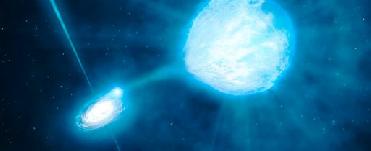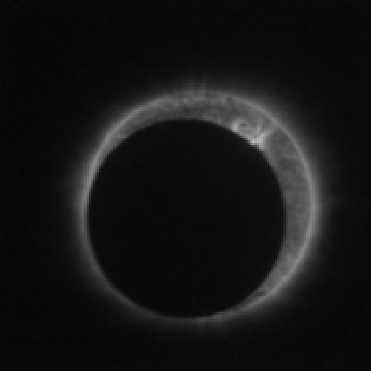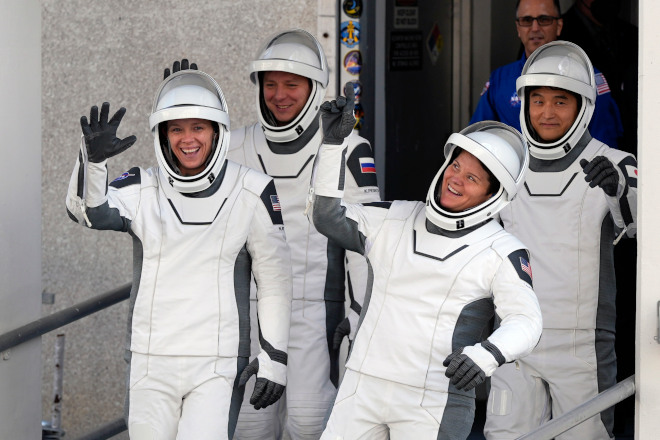
This artist�s impression depicts the newly spotted stellar-mass black hole in spiral galaxy NGC 300. An ESO Photo
PARIS (BNS): A stellar-mass black hole, fifteen times the mass of the Sun, has been detected for the first time in a galaxy other than the Milky Way.
The new-found black hole, spotted in spiral galaxy NGC 300 six million light-years away, is also the second most massive stellar-mass black hole ever spotted.
�This is the most distant stellar-mass black hole ever weighed, and it�s the first one we�ve seen outside our own galactic neighbourhood, the Local Group,� according to Paul Crowther, Professor of Astrophysics at the University of Sheffield and lead author of the paper reporting the study.
Astronomers have found the black hole by using European Southern Observatory�s (ESO) Very Large Telescope.
Entwined with a �Wolf�Rayet� star, the black hole appears to be dancing around it in a �diabolic waltz�, with a period of about 32 hours. The astronomers also found that the black hole is stripping matter away from the star as they orbit each other.
�This is indeed a very �intimate� couple. How such a tightly bound system has been formed is still a mystery,� said collaborator Robin Barnard.
The �Wolf�Rayet� star has a mass of about twenty times that of the Sun. It is a star nearing its demise and expels most of its outer layers into its surroundings before exploding as a supernova. Its core then takes the shape of a black hole.
According to astronomers, the Wolf�Rayet star will explode within less than a million years, thereby becoming a black hole.
�If the system survives this second explosion, the two black holes will merge, emitting copious amounts of energy in the form of gravitational waves as they combine,� says Crowther.
However, it will take some few billion years until the actual merger, far longer than human timescales.
 Previous Article
Previous Article Next Article
Next Article











The Indian Air Force, in its flight trials evaluation report submitted before the Defence Ministry l..
view articleAn insight into the Medium Multi-Role Combat Aircraft competition...
view articleSky enthusiasts can now spot the International Space Station (ISS) commanded by Indian-American astr..
view article